The Mental Health Crisis Haunting Generation Z Finding a Silver Lining Behind the Struggles
Generation Z, encompassing individuals born between the mid-1990s and early 2010s, is emerging as a demographic distinct not only for its digital fluency but also for the mental health challenges it faces. As the first generation to grow up in an era dominated by social media, instant communication, and unprecedented global connectivity, Gen Z is uniquely susceptible to a range of psychological stressors. These stressors include the pressures of maintaining an online persona, the relentless pursuit of academic and career success, and the looming threats of climate change and political instability.
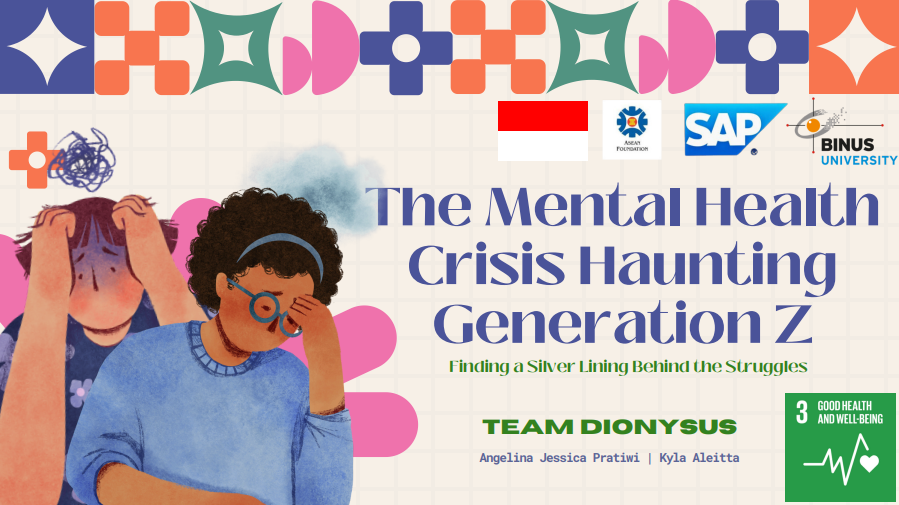
Recent research indicates a troubling increase in mental health issues such as anxiety, depression, and suicidal ideation among Gen Z. The ubiquity of social media has created a double-edged sword, offering both a platform for connection and a breeding ground for comparison, cyberbullying, and digital addiction. Additionally, the competitive nature of contemporary education and job markets places immense pressure on young individuals, often leading to burnout and a pervasive sense of inadequacy. Beyond these personal and academic challenges, Gen Z is acutely aware of broader societal and environmental crises. The existential threat of climate change, political polarization, and social unrest contribute to a pervasive sense of uncertainty and fear about the future. This combination of personal, academic, and global stressors creates a complex and often overwhelming mental health landscape for this generation.
This article delves into the multifaceted mental health crisis affecting Generation Z, examining the various contributing factors and the potential solutions. By exploring the intersection of digital culture, academic pressures, and global concerns, we aim to provide a comprehensive understanding of the mental health challenges faced by Gen Z and highlight the urgent need for targeted interventions and support systems.
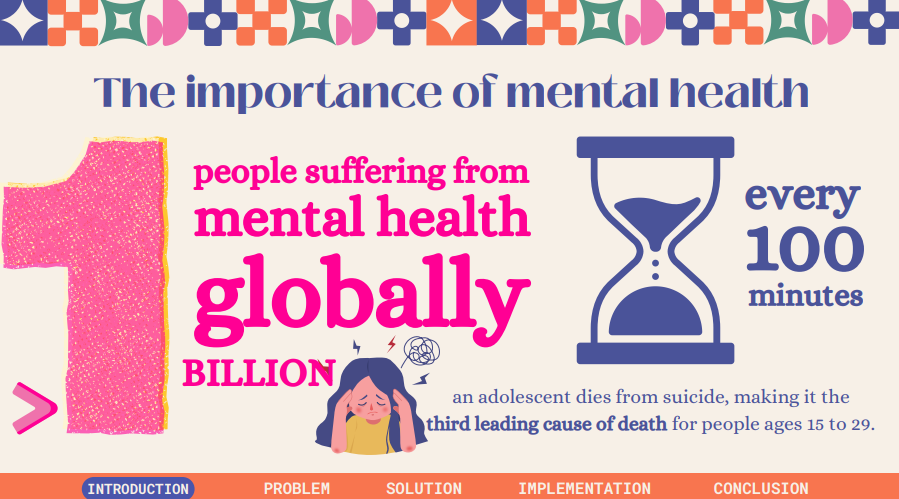
As technology continues to advance at an unprecedented pace, the realm of mental health care is experiencing a revolutionary transformation. The integration of cutting-edge features and tools is reshaping how individuals approach and manage their mental well-being, offering greater accessibility, personalization, and proactive intervention. This article explores some of the most promising innovations that are set to redefine the landscape of mental health support.
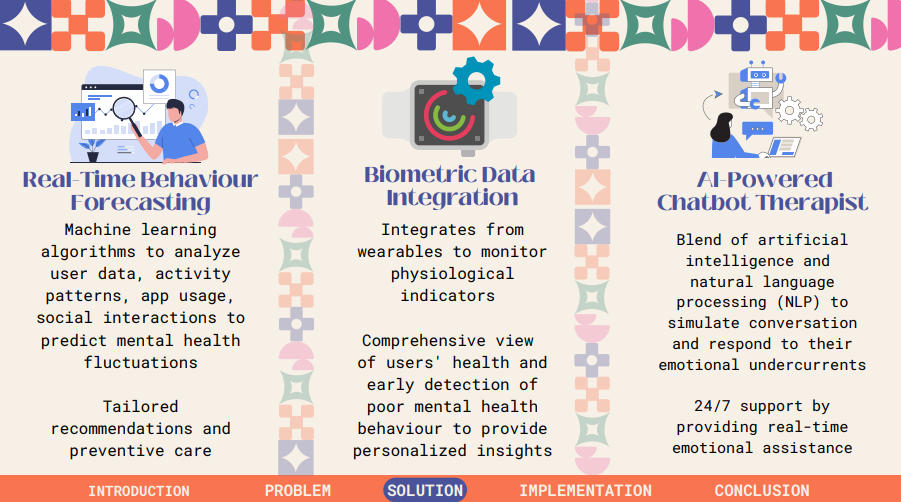
One of the most significant advancements in this field is the development of the AI-powered chatbot therapist. This tool utilizes artificial intelligence (AI) and natural language processing (NLP) to simulate conversations with a real therapist. By analyzing a user’s vocabulary and emotional cues, the chatbot can provide accurate and empathetic responses that resonate with the user’s current emotional state. The AI-powered chatbot is available 24/7, offering real-time emotional assistance, practical coping mechanisms, and psychotherapeutic techniques. This continuous availability ensures that users have immediate access to help whenever they need it, which can be particularly crucial during moments of crisis or heightened stress. The convenience and accessibility of this tool make mental health care more inclusive and responsive, breaking down barriers to support for many individuals who may otherwise struggle to access traditional therapy.
Another groundbreaking innovation in mental health care is the use of predictive analytics for crisis intervention. This approach involves analyzing user data to identify patterns through sophisticated machine learning algorithms. By integrating a comprehensive database of mental health professionals and local support services, predictive analytics can anticipate potential mental health crises before they occur. When the system detects a potential crisis, it provides calculated assessments and sends immediate alerts to designated contacts, ensuring timely intervention. This proactive approach is designed to mitigate risks and provide essential support at critical moments, potentially saving lives and preventing severe mental health episodes. The ability to predict and preemptively address mental health crises represents a significant advancement in the field, offering a more dynamic and effective method of support.
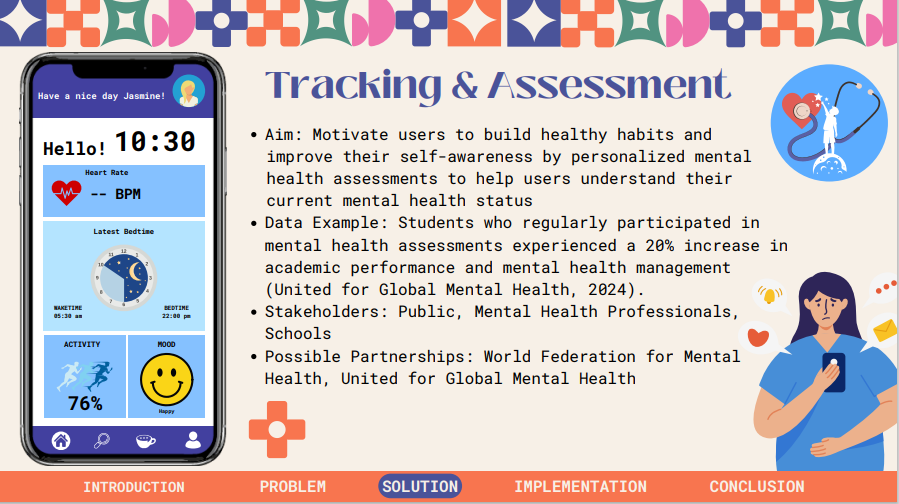
Additionally, personalized mental health assessments are being used to empower individuals to build healthier habits and enhance self-awareness. By participating in regular mental health assessments, users can gain a better understanding of their current mental health status. This self-awareness can motivate them to adopt healthier behaviors and improve their overall well-being. For example, research has shown that students who regularly participate in mental health assessments experience a 20% increase in academic performance and better mental health management (United for Global Mental Health, 2024). This personalized approach not only helps individuals manage their mental health more effectively but also promotes a culture of proactive mental well-being.

Furthermore, fostering a sense of gratitude and positivity through features like the Gratitude Garden is another innovative approach to mental health care. This tool encourages users to engage in positive affirmations, visualization exercises, and creative outlets like journaling. Studies have shown that participants who regularly practice gratitude exercises experience a significant reduction in depressive symptoms. For instance, a study by the American Psychological Association (2020) found that participants who engaged in gratitude exercises reported a 35% reduction in depressive symptoms over a three-month period. By promoting positive mental health practices, tools like the Gratitude Garden help individuals build emotional resilience and improve their overall mental well-being.
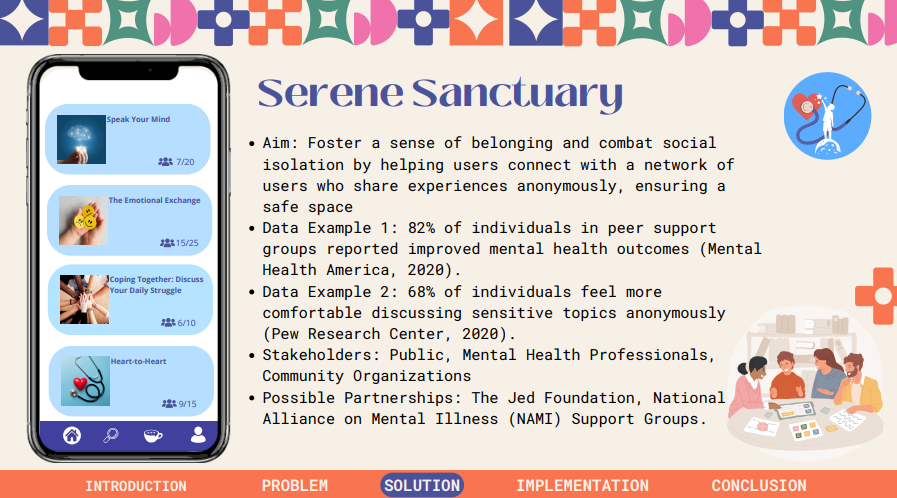
Finally, combating social isolation and fostering a sense of belonging through anonymous peer support networks is another key innovation. Platforms like the Serene Sanctuary provide users with a safe space to connect with others who share similar experiences. This sense of community can be particularly beneficial for individuals who may feel isolated or uncomfortable discussing sensitive topics in traditional settings. Research has shown that peer support groups can significantly improve mental health outcomes, with 82% of individuals in such groups reporting positive mental health improvements (Mental Health America, 2020). Additionally, the Pew Research Center (2020) found that 68% of individuals feel more comfortable discussing sensitive topics anonymously. By providing a platform for anonymous interaction, tools like the Serene Sanctuary help individuals feel more comfortable and supported in their mental health journeys.
In conclusion, the integration of AI-powered chatbot therapists, predictive analytics for crisis intervention, personalized mental health assessments, gratitude practices, and anonymous peer support networks represents a transformative shift in mental health care. These innovations offer a more accessible, personalized, and proactive approach to mental well-being, empowering individuals to manage their mental health more effectively and fostering a supportive and inclusive environment for all. As these technologies continue to evolve, they hold the promise of significantly improving mental health outcomes and enhancing the overall quality of life for individuals worldwide.
Reference:
- https://ourworldindata.org/mental-health
- https://www.mckinsey.com/featured-insights/mckinsey-explainers/what-is-gen-z https://www.who.int/data/gho/data/major-themes/health-and-well-being https://www.deloitte.com/content/dam/assets-shared/legacy/docs/about/2022/deloitte-2022-genz-millennial-survey.pdf https://www.ipsos.com/sites/default/files/ct/news/documents/2023-10/Ipsos%20World%20Mental%20Health%20Day%202023_Global%20Report.pdf
- https://www.keyministry.org/church4everychild/2019/10/22/the-new-statistics-on-mental-health-from-samhsa
- https://www.who.int/news/item/08-10-2021-who-report-highlights-global-shortfall-in-investment-in-mental-health
- https://www.afterbabel.com/p/international-mental-illness-part-one
By :
- Angelina Jessica Pratiwi – 2602119543
- Kyla Aleitta – 2602099661

